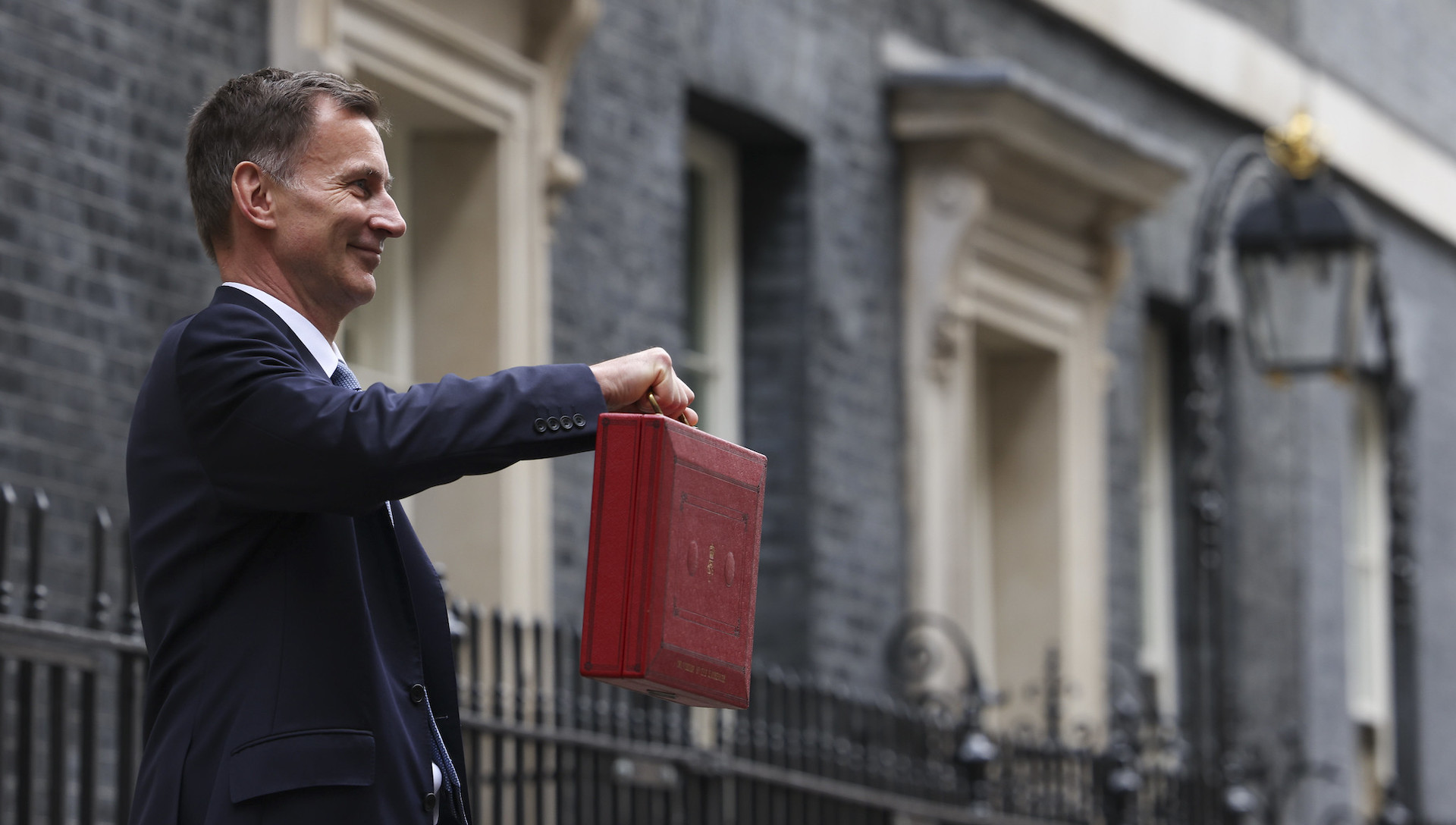There was no mention of the fund in Jeremy Hunt’s Autumn Statement and the DWP has not announced any plans to extend the scheme into the next financial year.
A spokesperson for the DWP previously told The Big Issue: “We have invested over £2bn into the household support fund over the last two years – with almost £800m already paid to families with children to help with the cost of living. The fund is available up until March 2024.”
The summit was organised by End Furniture Poverty, Cash Perks, Greater Manchester Poverty Action and the Independent Food Aid Network (IFAN) and attended by charitable organisations and councillors across the country. Each are calling for the government to continue the “lifeline” fund.
Recent research by End Furniture Poverty has found that the household support fund provided 62% of all local welfare assistance in 2022. Star-Keddle said its end would be “completely devastating for local welfare services and the people that rely on them”.
The Big Issue recently spoke to campaigners, councillors and politicians about how an end to the household support fund could mean “crisis support will disappear altogether in many areas”.
But Sir Stephen Timms, the Labour MP and chair of the Work and Pensions Committee, said the issue has otherwise not received the “attention that it deserves” and it is becoming increasingly urgent.
Advertising helps fund Big Issue’s mission to end poverty
He expects that the government is unlikely to make an announcement around the household support fund until the Spring Statement, by which point many councils will already have decided their budgets and “dismantled the administrative support systems” needed to run the fund.
On Wednesday (January 31), Timms is set to chair a debate in Westminster Hall around the household support fund – but it is only an hour long at the end of the working day and may not be attended by the majority of MPs.
Speaking at the summit on Tuesday, Timms said it would be “appalling” if the DWP does not extend the household support fund “lifeline”.
People with no recourse to public funds cannot claim benefits, such as asylum seekers, but Timms explains that many councils have been able to help this vulnerable group through the household support fund.
“There’s a great deal at stake here,” he said, particularly as council budgets are being increasingly squeezed and a number of authorities are finding themselves bankrupt.
Timms added: “Rishi Sunak did tell me that by the time of the election, he wants to see food bank demand coming down. Well, it’s rocketing at the moment. And we’ve really got to have a household support fund if there can be any prospect of stabilising demand for food banks.”
Advertising helps fund Big Issue’s mission to end poverty
Ellie Coteau, from the Welcome Centre food bank in Huddersfield, said: “We’re planning for the worst from 1 April. If the household support fund doesn’t continue, we anticipate that we’ll see a really significant increase in need for crisis support, and it will become increasingly difficult and unsustainable.”
The food bank has seen the positive and significant impact cash-first support can have on vulnerable people through cost of living payments and the household support fund.
In Huddersfield, there was targeted support offered by the council such as to families in receipt of free school meals, as well as by application for people who felt they needed more help. Some of the money was also issued to organisations, including the food bank, and they used that to supply cash grants to the people they support.
“We could see how much of a difference it made,” Coteau said. “It gave people flexibility and dignity.”
IFAN has consistently called for a cash-first approach to food aid, and it has recently created a map showing the support people can get in their local area.
Maria Marshall, project manager at IFAN, said: “Crisis support in England can be very patchy and it really is a postcode lottery as to what kind of support is available to you, but also there has been real progress made particularly with the introduction of the household support fund.
Advertising helps fund Big Issue’s mission to end poverty
“And in this time of uncertainty for people, it’s exactly the time that we need to continue to build on this progress by extending the fund and not allowing this to fall by the wayside.”
The cost of living crisis continues to have a harrowing impact. Inflation plateaued to 4% in December – but prices are still going up and low-income households have nothing left to sacrifice.
Alastair Cooper, senior policy advisor on child poverty at Barnardo’s, said: “Many families across the UK who we are supporting are having to prioritise things like food, heating and electricity over things like replacing a broken bed for their child or replacing a mouldy mattress for example, and that’s the extent to which the cost living crisis is really starting to affect families.”
More than one in 10 children have had to share a bed or sleep on the floor in the last 12 months, impacting an estimated 894,000 children in the UK, according to research from Barnardo’s. And an end to the household support fund would make that worse.
Cooper said: “We know that a lot of local authorities have been helping families with access to furniture and just as an example we’ve got a service in Birmingham, that Barnardo’s was involved with, which is helping families get beds and bedding for the children and it’s funded by the household support fund.”
The summit also heard from a panel of local council representatives who shared their fears about the end to the household support fund.
Advertising helps fund Big Issue’s mission to end poverty
Ellie Kershaw, the director of growth and economic development for Tower Hamlets council, said the fund has partly been used to deliver more than 1,000 tonnes of food to vulnerable households in the last 12 months.
That equates to 2.4 million meals – vital in Tower Hamlets, which has one of the highest rates of poverty in the country.
“That is going to be a huge loss to the borough,” Kershaw said. “We 50% fund that through the household support fund. We have already dug quite deeply into council coffers.”
Councillor Shama Tatler added that in Brent, they are projecting to spend £30m more than they had laid out in their budget on temporary accommodation. The council is seeing around 150 families facing homelessness each week.
“It’s not just a potential reduction in the household support fund,” Tatler said, “councils are also having to grapple with the fact that other support schemes we have in place may need to be reduced because of the sheer lack of resources that councils are now facing.”
She added: “Councils are having to make real decisions about what services we’re delivering. Some of these services aren’t statutory, but it’s something that we absolutely need to do to support our residents.
Advertising helps fund Big Issue’s mission to end poverty
“It’s crucial that along with the household support fund, there’s a conversation about how we realistically support councils in the long term and how to continue supporting those who absolutely need it. It’s not a party political point. This is absolutely hitting our communities really hard. It’s vital that this support continues.”
Do you have a story to tell or opinions to share about this? We want to hear from you. Get in touch and tell us more.










